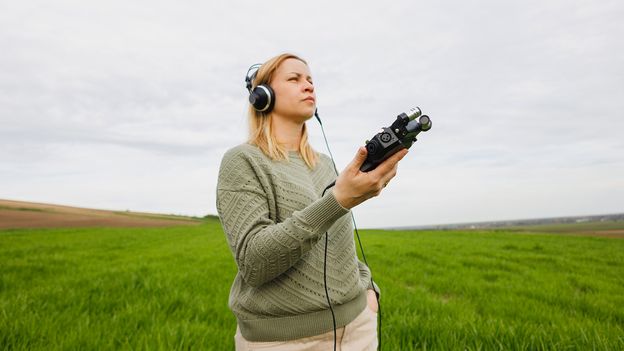“It’s been one of those what we might call a wastepaper basket sort of issues… that just gets pushed away by health professionals,” says neuroscientist Daniel Shepherd of Auckland University of Technology in New Zealand. Only in recent years “have people actually really started to say, right, this is at an experiential level really impacting patients”, he adds. “We really need to actually start getting a handle on this.”
Noise sensitivity isn’t a formal medical diagnosis. People can find out if they’re noise sensitive by taking questionnaires like the 21-question Weinstein’s noise sensitivity scale (which asks, for instance, if you’re bothered by people whispering and crinkling sweet wrappers in a movie theatre, if you get mad at people making noise when you’re trying to sleep or work, even if the sound of music bothers you if you’re trying to concentrate.)
 Getty Images
Getty ImagesNoise sensitivity is different from other sound-related conditions like misophonia. This is a specific decreased tolerance to certain sounds, like chewing, throat-clearing, tapping or ticking, which trigger intense feelings of disgust or rage, explains Jennifer Brout, a clinician and the founder of the US-based International Misophonia Research Network. Noise sensitivity is also different from hyperacusis, where people feel pain or extreme discomfort because they perceive sounds more loudly than they actually are.
Noise sensitivity, by contrast, is a general reactiveness to all sounds, regardless of how loud they’re perceived or how loud they actually are. At the very least, noise-sensitive people find sound disruptive and become annoyed, angry, or even fearful or anxious. “I remember a person describing it like having a mosquito flying around you,” Shepherd says. “You just can’t not attend to it.”
